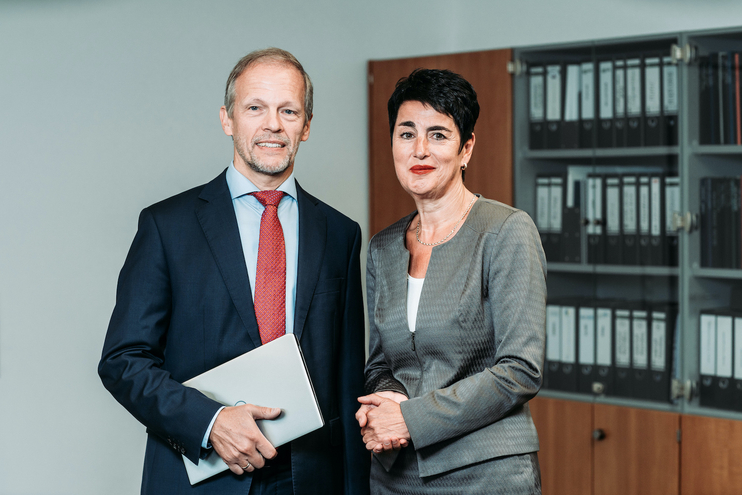(Braunschweig, 30th November 2020): The senate of the Leibniz Society has delivered a very positive evaluation of the Leibniz Institute DSMZ-German Collection of Microorganisms and Cell Cultures GmbH in Braunschweig, Lower Saxony. The evaluation, in writing due to the Corona crisis, took place in the summer of 2020. The senate opinion on the evaluation confirmed that the Leibniz Institute DSMZ is “a research infrastructure essential for microbiological and cell biologic research and implementation”. The evaluation committee praised the outstanding fulfilment of the DSMZ task portfolio. This includes the collective activities of the institute as well as the research linked to this collection, which forms the basis of the scientific services offered to researchers around the globe. The institute is commended for its significant strengthening of research activities in the areas of systematic classification and evolution, functional diversity and pathobiology.
“We are proud that the senate has given the DSMZ and therefore our work this excellent rating”, comments Bettina Fischer. The DSMZ’s administrative managing director is particularly pleased “that our efforts regarding the extensive restructuring, the development of new research areas and a strategy that is fit for the future of digitalisation have been acknowledged so explicitly.” “Our future research focus will be on the DMSZ Digital Diversity initiative”, adds Prof. Jörg Overmann, Scientific Director of the DSMZ. The plan is to consequently expand the digital infrastructure of microbiological resources in the next few years, driving forward the digitalisation of data and their worldwide availability.
In its statement, the senate of the Leibniz community recommends that federal and regional authorities in Germany continue to support the DSMZ. The next regular evaluation of the Leibniz-Institute DSMZ is planned for 2027.
Link to the senate statement (in German)
Press contact:
PhDr. Sven-David Müller, Head of Public Relations, Leibniz Institute DSMZ-German Collection of Microorganisms and Cell Cultures GmbH
Phone: ++49 (0)531/2616-300
Mail: press(at)dsmz.de
About the Leibniz Institute DSMZ
The Leibniz Institute DSMZ-German Collection of Microorganisms and Cell Cultures is the world's most diverse collection of biological resources (bacteria, archaea, protists, yeasts, fungi, bacteriophages, plant viruses, genomic bacterial DNA as well as human and animal cell lines). Microorganisms and cell cultures are collected, investigated and archived at the DSMZ. As an institution of the Leibniz Association, the DSMZ with its extensive scientific services and biological resources has been a global partner for research, science and industry since 1969. The DSMZ is the first registered collection in Europe (Regulation (EU) No. 511/2014) and certified according to the quality standard ISO 9001:2015. As a patent depository, it offers the only possibility in Germany to deposit biological material in accordance with the requirements of the Budapest Treaty. In addition to scientific services, research is the second pillar of the DSMZ. The institute, located on the Science Campus Braunschweig-Süd, accommodates more than 73,000 cultures and biomaterials and has 198 employees. www.dsmz.de
The Leibniz Association
The Leibniz Association connects 96 independent research institutions that range in focus from the natural, engineering and environmental sciences via economics, spatial and social sciences to the humanities. Leibniz Institutes address issues of social, economic and ecological relevance. They conduct knowledge-driven and applied basic research, maintain scientific infrastructure and provide research-based services. The Leibniz Association identifies focus areas for knowledge transfer to policy-makers, academia, business and the public. Leibniz institutions collaborate intensively with universities – in the form of “Leibniz ScienceCampi” (thematic partnerships between university and non-university research institutes), for example – as well as with industry and other partners at home and abroad. They are subject to an independent evaluation procedure that is unparalleled in its transparency. Due to the importance of the institutions for the country as a whole, they are funded jointly by the Federation and the Länder, employing some 19,100 individuals, including 9,900 researchers. The entire budget of all the institutes is approximately 1,9 billion Euros. www.leibniz-gemeinschaft.de


